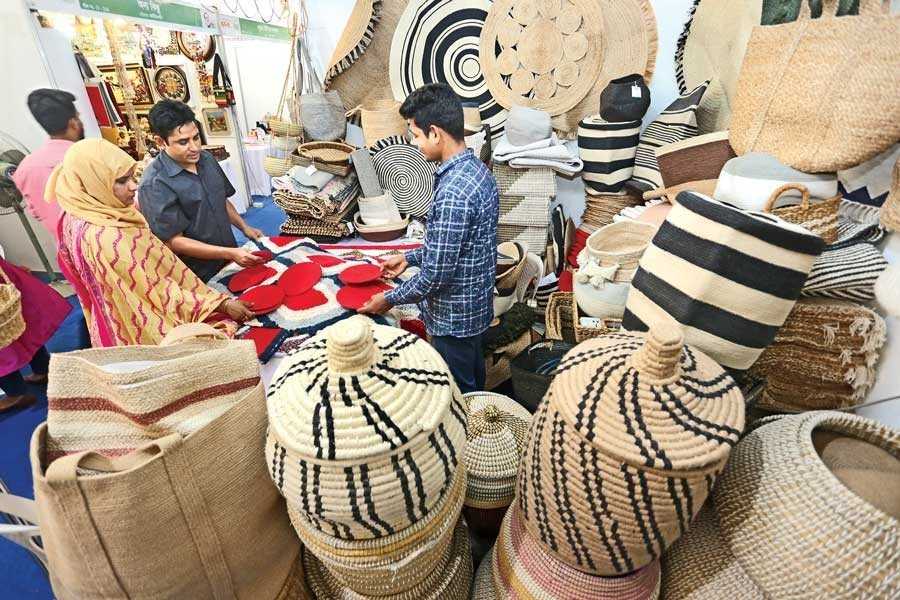Lack of usage of credit major barriers to SME creation: Study

Image: Collected
Lack of capital and usage of credit remain as key barriers to cluster-based SME creation, according to a most current study.
The analysis conducted by Bangladesh Institute of Development Analyses (BIDS) also discovered shortage of gas source, load-shedding, insufficient cluster-based SME production policy and land, issues with marketing and highly competitive markets as various other barriers.
"Access to loan in lower interest rates, arrangement of training for the staff, improvement in electric power and gas source, creation of new marketplaces and option of skilled employees are badly necessary for the creation of cluster-based SMEs," said the analysis conducted in 2020.
The findings of the study were released on February 18, 2021.
It suggested that standard communication with SME dealers, introduction of contemporary and advanced machines, option of property, lower VAT and tax and allocation of space for clusters ought to be ensured for the advancement of cluster-based SMEs.
It also showed that about 28.8 % of clustered SMEs got fire provider system as against 21.2 per cent of non-clustered SMEs.
The analysis titled "A Comparative Review on Clusters and non-Clusters Based SME Development in Bangladesh" discovered that the plastics and synthetics sector (about 30 %) in clustered SMEs ranked first regarding having fire service system, followed by the micro garments sector (17.65 %).
On the evaluation of skills of personnel as evaluated by SMEs, it discovered that skill level of personnel was among "somewhat satisfactory" and "satisfactory".
The study used secondary-level information and also information obtained from consulting with SME Foundation (SMEF). The enterprise study, key element informant interviews (KIIs), and meetings included both cluster and non-cluster SMEs.
The sample size for the enterprise survey was 500 (250 cluster SMEs and 250 non-cluster SMEs). The KIIs included 75 cluster SMEs and 75 non-cluster SMEs.
In Bangladesh, there are nearly 7.9 million SMEs incorporating micro enterprises adding to Gross Domestic Merchandise (GDP) at an estimated 25 % (Asian Development Bank 2015).
SMEs take into account 11 per cent of the country's professional establishments, 30 % of industrial employments and 40 % of manufacturing productivity (Economic Census 2013).
The primary objective of the study was to determine comparative performance of the enterprises under cluster and outside cluster. The analysis was as well conducted to recognize the barriers and challenges and make tips for cluster-based SME production.
It revealed that about 41.2 % of clustered SMEs work with different research organisations, finance institutions, universities and organization development offerings as against 31.2 per cent of non-clustered SMEs.
About 65.38 % of clustered SMEs use NGOs for the intended purpose of training and about 37.18 % with financial establishments for the intended purpose of the loan.
About 31.6 per cent of clustered SME business owners received training on business aside from about 8.0 per cent non-clustered SMEs.
Speaking with the FE, Dr. Kazi Iqbal, who was the analysis director, said credit rating at lower interest levels and easy conditions (64.80 %), arrangement of advanced training for the personnel (32 per cent) and availability of raw materials (16 %) are three major problems policymakers need to ensure for the growth of the SME sector.
"Both clustered and non-clustered SMEs add the majority of the value together with the production method of a product. Value addition to cluster SMEs varies from 70 per cent (micro garments industry sector) to 91 % (fabric clothing and customer products sector)," he added.
Source: https://thefinancialexpress.com.bd
Tags :
Previous Story
- Exploring the scope of SME bond
- Move to increase procedure to list small-cap companies
- Little garment factories struggling to stay afloat
- Women entrepreneurs need particular financial support: experts
- Ways of tackle pandemic induced poverty found in...
- 96pc small enterprises suffer fall in income: study
- 96% MSMEs in Bangladesh lost income in Covid-19...
- Evaly brings SME package to deliver products to...